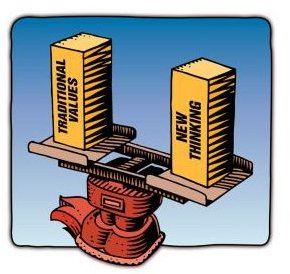How Nepotism in the Workplace Affects Employee Morale and Organizational Culture?
What is Nepotism?
Nepotism is nothing but a favoritism shown by the company to the relatives or friends of the employer or the owner. When the friends or the relatives are granted a new job, promotion or higher career opportunity, regardless of merit, the act is known as nepotism. At times, the managers develop a like or dislike towards a particular team member and act accordingly. This act is also called nepotism.
The Common Reasons for Nepotism in the Workplace
According to Huseyin Arasli from BNET, the CBS interactive business network, the service industries in micro-geographies are prone to nepotism at various work levels. The sociocultural, economic and political structures are given as the common reasons for such favoritism in such geographies. What happens in the bigger places and organizations? Employees undergo nepotism in one way or another in bigger organizations as well. This cronyism will create both short and long term negativity among employees and in turn impact the organizational growth.
Let us look in detail about how nepotism spoils employee morale and workplace culture.
How does Nepotism Affect Employee Morale?
Why do people prefer having their relatives or friends at their workplace? What do they achieve, apart from benefiting their relatives or friends? According to Ron Prokosch, president of The Prokosch Group, HR consulting firm, employing relatives or friends saves costs on recruiting and training. It is also believed to help reduce employee turnover since the relatives are highly committed to organizational growth.
However, most of the time, having a relative in the organization spoils the morale of employees. What are all the reasons? Read on.
- When the relatives are given a key position or promotion, bypassing an employee with strong merits, it spoils employee morale as a whole.
- Employees feel that they are being used without getting anything in return and start looking for an opportunity to leave the company soon.
- Employees affected by favoritism see no career growth in the organization and in turn lose interest in the company’s growth.
- The level of commitment, loyalty and the sense of ownership are low since the employees don’t achieve any personal growth.
- The employees who manage the relatives of the employer find it difficult to handle them and take corrective action if necessary. This greatly affects team morale which can lead to a high level of employee attrition.
How would you feel if your spouse faced you during an important official meeting? Well, organizations have different opinions on a husband and wife working together. In order to avoid personal conflicts or workplace stress, some organizations have policies against both spouses working together for them. A few companies, mostly the IT organizations that work with an onshore-offshore model, prefer having both the husband and wife working for them. They are able to send them together to onsite projects. This helps the employers to retain them on long-term onsite projects.
How does Nepotism Affect Organizational Culture?
Some employers feel that the level of loyalty, morale, trust and commitment of friends or relatives they hire is higher compared to others in the workplace. Read ahead to learn how nepotism in the workplace affects organizational culture.
Control: Unfortunately, not all family members and relatives come with the right merit to be employed for a particular position or a role. When the manager is not allowed to control a subordinate just because she is a relative of an employer, imagine what will happen to the company’s discipline. Nepotism allows rules to be broken and can lead to a chaotic situation for business owners.

Ethics: When relatives are involved, the company’s ethics can get spoiled and even go into ruins. Let us take an example of Sathyam Computers, one of the India-based IT giants of mid-2000. Despite the apprehensions raised by the board members, its founder, Mr. Ramalinga Raju, went ahead and acquired infrastructure companies owned by his sons. This led the company to lose its share by 55% and the investors experienced great loss. Not only was the workplace culture impacted, but employee morale was also highly affected. The attrition recorded was very high until Tech Mahindra bought Sathyam Computers.
Allowing nepotism at any level creates excess damage to the organizational culture. Especially nepotism at the higher management or leadership levels will greatly spoil the company image and growth. Leadership roles are very important for the organizational culture and growth.
Avoid Nepotism and Also Make Your Relatives Happy
Let’s say you have a cousin who is highly skilled and experienced and is the right person for a critical role in your organization. You are desperately looking to fill that role immediately and you know that your cousin will do a wonderful job if you hire him. How can you avoid the issues of nepotism in this scenario?
- Make your cousin undergo a formal procedure of the hiring process.
- Make him understand that you will not influence the placement process by favoring him.
- Even though you can help your cousin to prepare for the interview, do not provide any job assurance prior to the interview process.
- Avoid involving yourself in the interview panel or the process.
Once recruited, tell him how important the company rules are and that you will not protect him in case of any rule-breaking activities. Openly discussing and clearly conveying company values will help you from getting into problems related to nepotism.
References
-
Nepotism by Ron Prokosch retrieved at http://www.legacyhumancapital.com/pdf/Nepotism.pdf
-
Nepotism, favoritism and cronyism: a study of their effects on job stress and job satisfaction in the banking industry of North Cyprus by Huseyin Arasli, Mustafa Tumer retrieved at http://findarticles.com/p/articles/mi_7398/is_9_36/ai_n32061579/
-
Nepotism, reference for business retrieved at http://www.referenceforbusiness.com/management/Mar-No/Nepotism.html
Image Credit:
